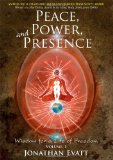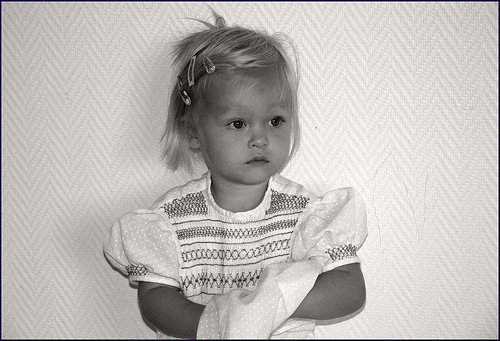Last Updated on August 16, 2015
“Guilt can be defined as self-critical feelings and attitudes that are experienced in relation to our actions, as well as in relation to our thoughts and feelings we see as unacceptable… However, even in situations where you know you are in the wrong, it serves no purpose to attack yourself for the negative effects of your behavior. It is much more constructive to identify the critical inner voices that intensify your guilty feelings, feel compassion for yourself and the other person, and plan ways to change your behavior in future interactions.” ~ Robert W. Firestone, Lisa Firestone, Joyce Catelett from Conquer Your Critical Inner Voice
 I received the above quote in an email today. I agree with it, and I would add that in one way guilt is another manifestation of victim-consciousness (something I talk about extensively in my book Peace, Power, and Presence). Guilt is the victim turning in on itself. Feeling inner guilt is in a way saying, “I am a victim to my own actions”, and a sign of a fragmented personality or sense of self. One “part” of me acts, thinks, or behaves in a certain way. Another part of me judges that first part and it’s behaviour as wrong and bad. Yet rather than simply seeing the error in my ways, the victim pulls me into self-pity and self-judgement. As the above quote suggests, the guilt-ridden person attacks himself about his actions. This attack comes from another part as the victim consciousness steps into the role of persecutor (every victim is hitched up to a persecutor in one way or another) and starts to beat up on me about what I have done.
I received the above quote in an email today. I agree with it, and I would add that in one way guilt is another manifestation of victim-consciousness (something I talk about extensively in my book Peace, Power, and Presence). Guilt is the victim turning in on itself. Feeling inner guilt is in a way saying, “I am a victim to my own actions”, and a sign of a fragmented personality or sense of self. One “part” of me acts, thinks, or behaves in a certain way. Another part of me judges that first part and it’s behaviour as wrong and bad. Yet rather than simply seeing the error in my ways, the victim pulls me into self-pity and self-judgement. As the above quote suggests, the guilt-ridden person attacks himself about his actions. This attack comes from another part as the victim consciousness steps into the role of persecutor (every victim is hitched up to a persecutor in one way or another) and starts to beat up on me about what I have done.
When elucidated in this way it all starts to look rather comical. Of course those of us who continue to get caught up in this dynamic likely find it anything but funny. It is one thing to discern the error in our ways—to simply recognise my sins. Sin being nothing more or less than to “miss the mark“, such as an archer aiming for a practice target and missing the small round circle or mark in the centre. To miss the mark is an opportunity to try again, and through repeated attempts we improve. The only “mark” Man can miss or not is that of missing or hitting the target known as Reality—to see the world as it is (or not). Man’s consciousness is like an arrow spearheading through the vast dimensions of Awareness. It either hits the mark of reality or it does not. There is no right or wrong about it.
In human history it was social law and legal process that adding the idea of “guilt” to the definition of “sin”. Missing the mark went from being the simply self-awareness I have acted in a way that is life-taking and here is my opportunity to evolved, to self- and social-punishment for being bad and wrong for my mistaken actions.
As a side note: Shame, on the other hand, is the victim’s internalisation of the judgements (perceived or actual) from the surrounding world for my mistaken actions.
Not feeling guilt has one important prerequisite. Realistic and heart-centred self-awareness, particularly awareness of self in relation to the perceived world around us. Without this a human being can fall into sociopathic behaviour patterns. Even more extreme, anti-social forms of psychosis (or psychotic behaviour) may manifest. Obviously that is not what I am referring to when I suggest people wake up from beating themselves up with guilt. I would be include to say that sociopathic behaviour and personality traits are the result of excessive guilt. When an emotion becomes too strong or too much to bear, the human psyche has a way of turning it off entirely. But just as it would be dangerous for my psyche to turn off the pain response to painful physical sensations (some people have this disorder, and have great trouble not harming themselves physically), to turn off our emotional pain response to life-taking behaviour is also dangerous.
In such a state a person can end up in denial about the true consequences of their actions, and the unconscious motivations driving those actions. This contradicts everything The Path of Freedom is about. To move from awareness of feeling guilt to non-awareness of feeling guilt is the devolution of consciousness. To transition from awareness of feeling guilt into awareness of “how was my behaviour life-taking” and “what would be a more life-affirming way to behave in the future” is evolution of consciousness.
May we each resolve our inner entanglement with guilt and shame, and liberate ourselves from dwelling in the mistaken world of the victim.






Recent Comments